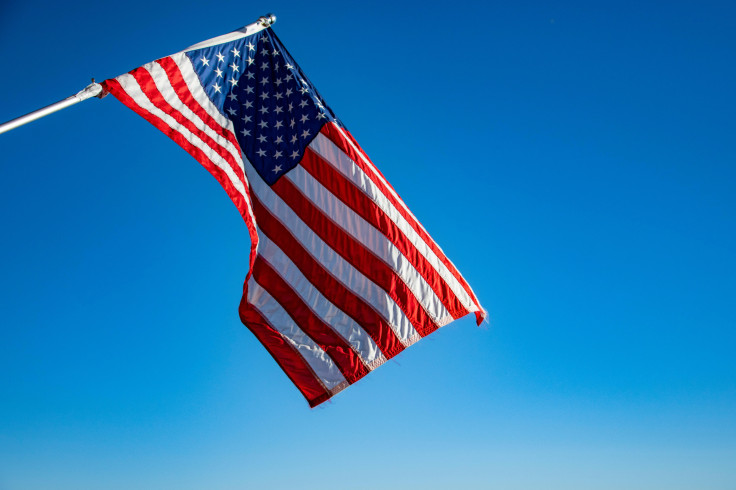Target DEI Initiatives Axed: List of Companies Rolling Back DEI and Those Standing Firm

Update Jan 27: CVS was mistakenly added to the list of companies that have rolled back or that have cut down their DEI initiatives, and has been removed as such.
The retail giant Target has announced it will end its diversity, equity, and inclusion (DEI) initiatives, marking a major policy reversal amidst rising political and social backlash against such programs. This shift is part of a broader trend among companies reassessing their commitment to DEI policies following legislative and public pressure, particularly from conservative groups.
Target Reverses DEI Policies
Target's DEI program, introduced after the murder of George Floyd in 2020, aimed to promote workplace diversity and inclusivity. It included hiring and promoting underrepresented groups, supporting minority-owned suppliers, and participating in surveys like the Human Rights Campaign's Corporate Equality Index. However, in a statement obtained by media outlets, Target confirmed it is ending these efforts as it adapts to "the evolving external landscape."
This comes after President Trump signed an executive order in January 2025 to eliminate DEI programs across the federal government. The order has emboldened critics of corporate DEI initiatives, leading several high-profile companies to follow suit.
A Broader Shift Across Industries
Target isn't alone in its retreat from DEI policies. Major corporations such as Walmart, Meta, Amazon, and McDonald's have also scaled back their initiatives in recent months. These decisions align with mounting conservative criticism and legal challenges following the Supreme Court's 2023 ruling against race-based affirmative action in college admissions.
Below is a detailed list of companies that have significantly reduced or ended their DEI programs:
Target: Target announced it would end its DEI initiatives, including programs supporting minority-owned businesses and participation in the Human Rights Campaign's Corporate Equality Index. The company cited a need to align with the "evolving external landscape" as the main driver of its decision.
Walmart: The retail giant confirmed it would not renew its five-year equity commitment launched after George Floyd's death. Walmart also withdrew from LGBTQ+ inclusion surveys and stopped using demographic data to influence supplier contracts.
Meta: The parent company of Facebook and Instagram dissolved its DEI team and ended policies requiring diverse candidate pools for job openings. The decision followed the Supreme Court's 2023 ruling against affirmative action.
Amazon: Amazon has phased out certain DEI programs and streamlined its diversity policies, focusing on "proven outcomes" rather than continuing broad DEI initiatives. The company also stopped several "outdated" programs by the end of 2024.
McDonald's: McDonald's ended specific diversity goals for senior leadership and paused external surveys, including those evaluating LGBTQ+ workplace inclusion. The company stated it remains committed to general inclusivity but is no longer pursuing DEI-specific initiatives.
John Deere: The agricultural equipment manufacturer announced it would no longer sponsor social or cultural awareness events and has removed DEI-related content from its training materials. It also stopped tracking workforce diversity data.
Tractor Supply: The rural retailer retired all DEI roles and programs, including sponsorships for Pride events and voting campaigns. It also ceased its participation in the Human Rights Campaign index.
Ford: Ford scaled back its DEI initiatives, stopped using diversity quotas in hiring, and exited the Human Rights Campaign's Corporate Equality Index. The company stated it would focus on fostering a "safe and inclusive workplace" without public commentary on polarising issues.
Harley-Davidson: The motorcycle manufacturer ended sponsorships and organisations unrelated to its core business and eliminated diversity quotas and supplier diversity goals. Harley-Davidson also stopped its participation in workplace equality rankings.
Lowe's: Lowe's consolidated its employee resource groups under one umbrella organisation and ended its sponsorship of external events, such as festivals and parades. The retailer also withdrew from LGBTQ+ workplace surveys.
Brown-Forman: The parent company of Jack Daniel's scaled back its DEI ambitions, removing quantitative diversity targets and tying employee goals to business performance instead. The company also discontinued participation in inclusion rankings.
Boeing: Boeing ended diversity quotas and supplier diversity spending goals. The aerospace giant also stated it would focus on operational excellence rather than socially motivated initiatives.
Companies Upholding DEI
While some corporations are rolling back, others remain committed to DEI. Prominent businesses such as Goldman Sachs, Costco, and JPMorgan Chase have publicly defended their initiatives, arguing they contribute to innovation and long-term growth.
Goldman Sachs: Continues to support diverse recruitment, gender pay equity, and anti-discrimination policies.
Costco: Reaffirmed its commitment to employee inclusion and supplier diversity, rejecting proposals to scale back.
JPMorgan Chase: Remains committed to supporting underrepresented communities, including veterans and second-chance initiatives for previously incarcerated individuals.
The Backlash and Legal Debate
The debate over DEI programs has reached new heights, with anti-DEI activists arguing these initiatives amount to illegal quotas and violate principles of meritocracy. Proponents, however, contend that dismantling DEI efforts could lead to lawsuits alleging workplace discrimination and hinder progress toward equality.
Ethan Peck, deputy director of the National Center for Public Policy Research, claimed DEI compromises "excellence and innovation" in the workplace, urging companies to drop such initiatives. Conversely, advocates like Christie Smith, a former Apple executive, argue that DEI strengthens organisations by fostering diverse perspectives and broadening market opportunities.
© Copyright IBTimes 2025. All rights reserved.






















